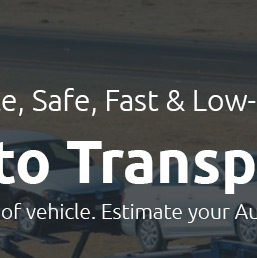 |
|
||||
 |
 |
 |
 |
||
 |
 |
|||||
 |
 |
 |
 |
 |
 |
 |
||
 |
 |
 |
 |
 |
 |
 |
 |
 |
 |
 |
|
 |
Understanding the Intricacies of Shipping Your Car: What You Need to KnowShipping a car, a task often perceived as daunting, can indeed be a streamlined and efficient process if approached with the right knowledge and considerations. Whether you're relocating across the country, purchasing a vehicle from a distant seller, or simply avoiding the wear and tear of a long drive, understanding the nuances of vehicle transport is paramount. Here, we delve into the key aspects you should be aware of, addressing common concerns and highlighting what truly matters in this logistical endeavor. Choosing the Right Shipping Method is the first crucial decision you'll face. There are primarily two options: open transport and enclosed transport. Open transport, the more economical choice, involves shipping your car on an open-air carrier, which is perfectly adequate for most vehicles. However, if you own a luxury or classic car, enclosed transport might be more suitable despite its higher cost, as it offers protection from the elements and road debris. Understanding Costs is essential, and while it may seem straightforward, several factors influence the final price. Distance is the most obvious factor; longer distances naturally incur higher costs. However, the route's popularity can also affect pricing. More popular routes might offer lower prices due to increased competition among carriers. Additionally, vehicle size and weight, the time of year, and fuel prices all play significant roles in determining the overall cost. Timeliness and Scheduling are other critical considerations. Car shipping is not like a pizza delivery-precise timing can be challenging. While most companies provide a delivery window, unforeseen circumstances like weather conditions and traffic can lead to delays. Thus, if your schedule is tight, planning ahead and communicating clearly with your shipping company is advisable. Insurance and Liability are aspects not to be overlooked. While all reputable car shipping companies offer some level of insurance, it’s wise to verify what is covered and consider purchasing additional coverage if necessary. Scrutinizing the terms and conditions can prevent unpleasant surprises and ensure peace of mind.
In conclusion, while the process of shipping your car can seem complex, understanding the critical elements can transform it into a manageable and even straightforward task. By carefully selecting your shipping method, understanding the cost structure, planning for scheduling, ensuring adequate insurance, and preparing your vehicle, you can effectively navigate the intricacies of car transport. Ultimately, informed decisions and clear communication with your chosen company will lead to a successful shipping experience, allowing you to focus on what truly matters: the excitement of your new destination or the joy of acquiring a new vehicle. https://www.shiply.com/us/car-shipping?srsltid=AfmBOorgigcWDObdY6L4l28FY3RqpIS4F6Ww9MjnOarxvPNKrYUUhmmH
Open car shipping by any car shipping company is the cheapest and by far the most common option when transporting a car. Your vehicle is placed on an open ... https://diytransport.com/chicago-illinois-car-shipping/
If you're searching for a simple method of transporting your vehicle into or out of Chicago or the Windy City, you've come to the right spot. https://www.pcsmypov.com/
... your vehicle shipping status or storage history using a shipping instruction number. Shipping Instruction #. search Lookup. search Find My Appointment. Need to ...
|
